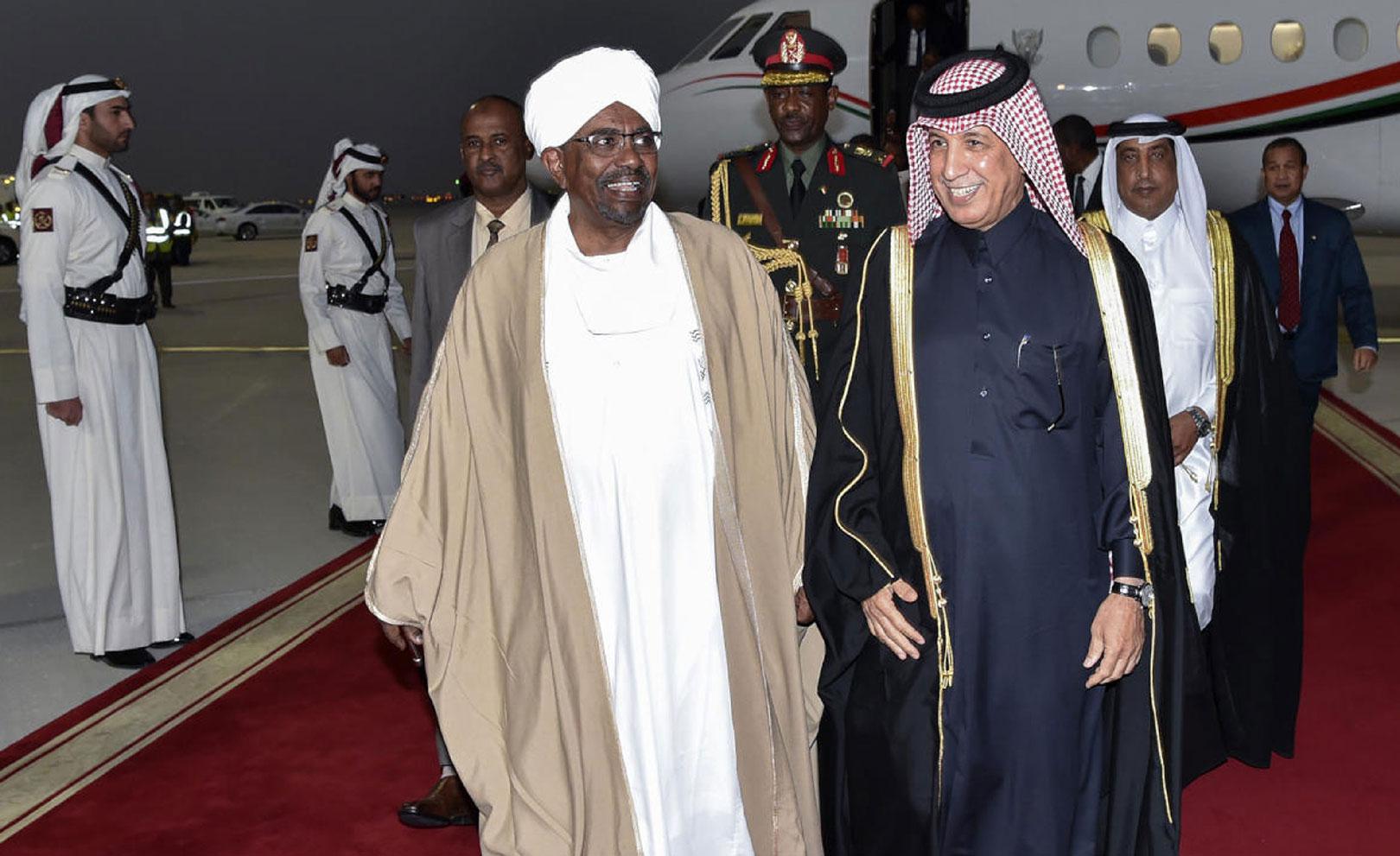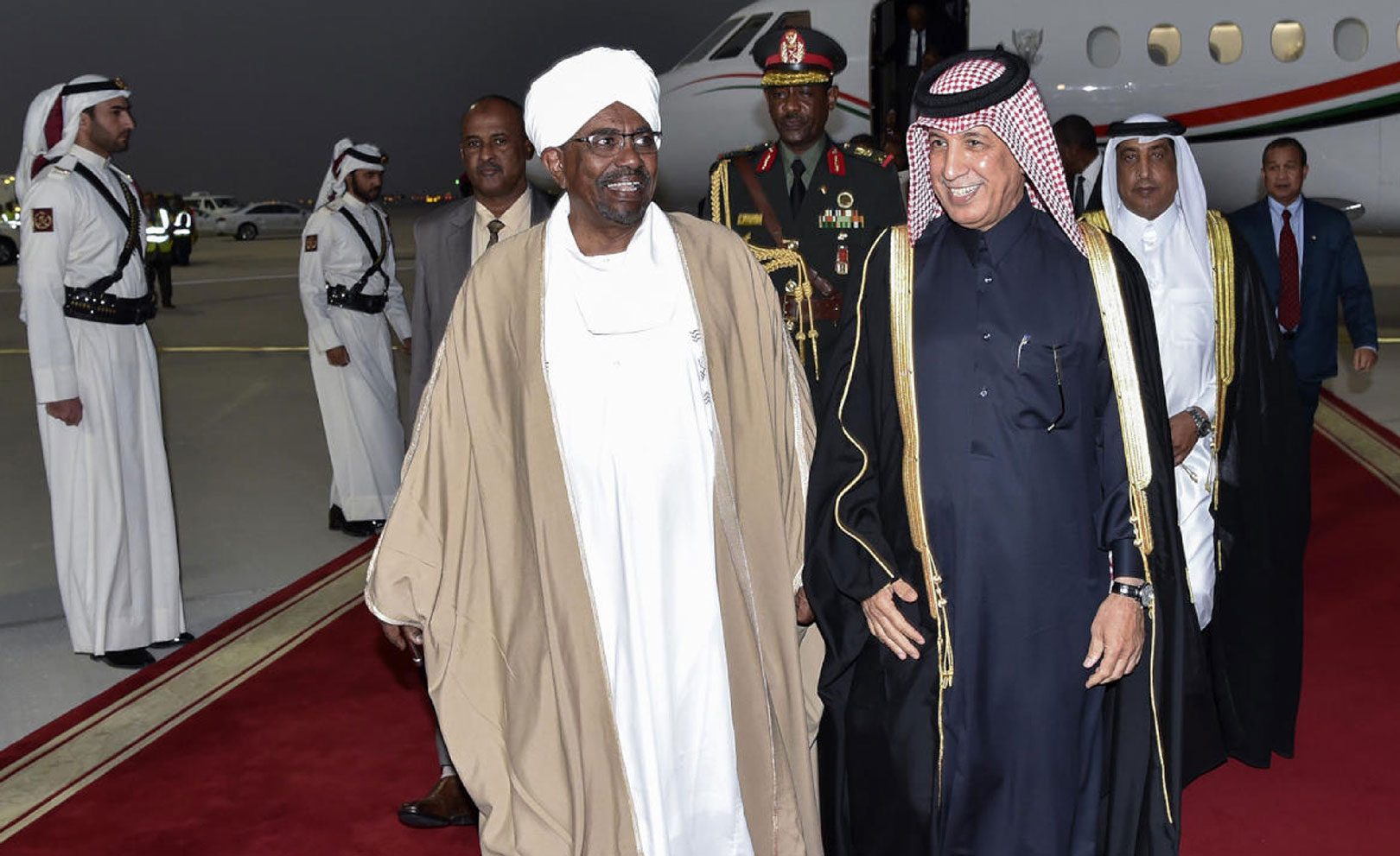Sudan's president looks for aid from Qatar
DOHA - The ruler of Qatar offered support for Sudan's "unity and stability" on Wednesday at a meeting with President Omar al-Bashir on his first foreign visit in more than a month of protests against him, a statement said.
The tiny but wealthy Gulf state vies with regional rivals for influence in Sudan, strategic in part for its access to the Red Sea, and last year agreed a $4 billion deal to jointly develop Suakin port.
But no new financial assistance was announced on Wednesday.
Bashir arrived in Qatar on Tuesday as protests raged at home. Anger at inflation and shortages has coalesced into calls for an end to his 30-year rule.
Sudan lost three quarters of its oil wealth when the south of the country seceded in 2011, plunging the country into its worst economic crisis in decades.
A devaluation of the currency in October pushed up prices, but lifting state subsidies on bread last month proved to be the final stroke, sparking the latest bout of unrest. A cash crunch also led to long lines at ATMs and limits on cash withdrawals. Similarly, a fuel shortage meant hours-long wait at gas stations.
"President Bashir briefed the Emir on the latest updates regarding the situation and challenges facing the country," said a statement from the court of Qatar's Emir Sheikh Tamim bin Hamad Al Thani.
"The Emir affirmed Qatar's firm stance on Sudan's unity and stability, and they discussed the latest developments in the Darfur peace process."
Darfur is the western region of Sudan that has been ravaged by a conflict between Sudanese forces and ethnic minority rebels.
Bashir has blamed the current unrest on both foreign "agents" and rebels from Darfur.
Qatar was among the first countries to express support after protests broke out on Dec. 19, with Sheikh Tamim calling Bashir to offer "all that was necessary", according to Sudan.
The official death toll from the unrest stands at 26, including two security personnel, but rights groups say at least 40 people have died.
Al-Bashir’s trip also cuts across the politics now roiling the Gulf Arab states.
Sudan has sent troops to support the Saudi-led war in Yemen, but now seeks aids from Qatar, which the kingdom and three other Arab states have been boycotting since June 2017 in a political dispute.
Since the protests erupted, many regional states have stood by Bashir despite the widespread calls for his removal.
On Wednesday Sudan said it had received assistance from the United Arab Emirates and accepted offers of support from Russia and Turkey "in light of the current circumstances", Oil Minister Azhari Abdel Qader said on Wednesday.
"We received assistance from the United Arab Emirates," he said. "And Russia and Turkey offered us assistance including fuel, wheat and others, and we accepted it as a normal matter between friendly countries in light of the current circumstances that Sudan is going through."
The minister did not give details on the scale or timing of the support.
Sudanese officials said in December that Sheikh Tamim promised Qatar will “provide all that is needed” to help Sudan get through its crisis.
The Qatari government has previously mediated between Khartoum and rebel groups involved in the Darfur conflict.
Bashir's regime has been accused of widespread human rights abuses and he has been charged by The Hague-based International Criminal Court for alleged genocide and crimes against humanity in Darfur.



